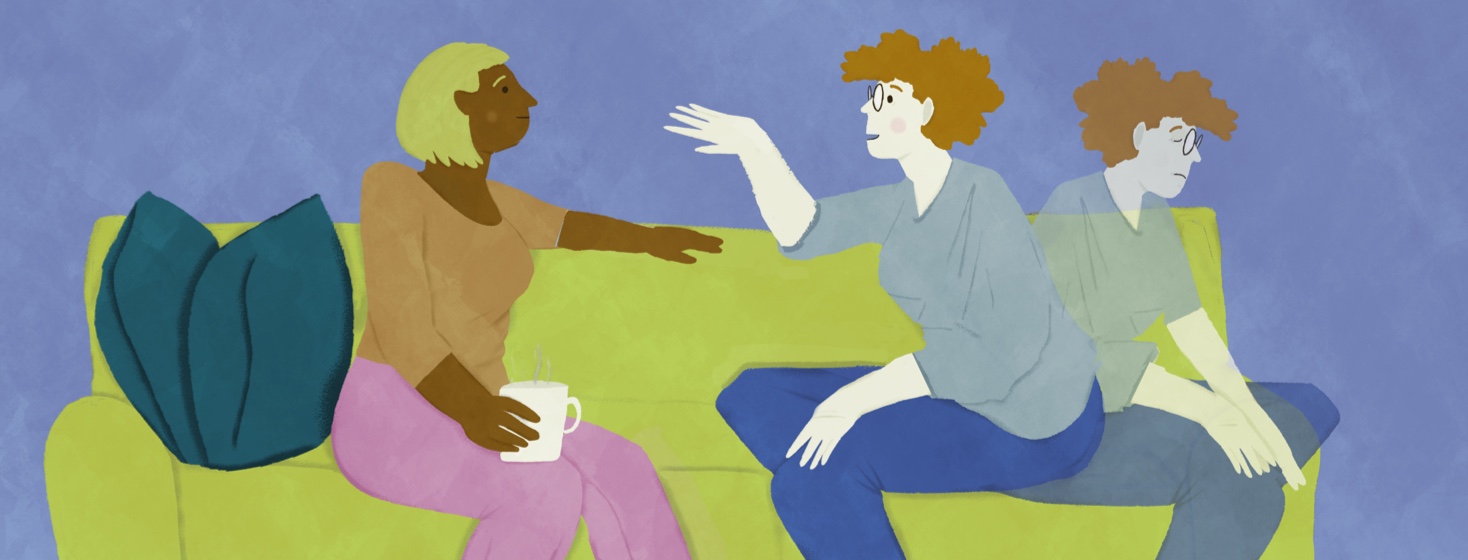Committing to Life While Acknowledging Loss
Spending a lifetime in healthcare, my experience with suffering may be skewed. To be present and of value to others, we build up some resistance to pain and suffering. I learned to act as a window screen. That is, taking in what others may describe, responding to their thoughts and feelings, yet never owning them as my own.
A human response to suffering
Doing so makes us ineffective in supporting the pain being expressed. For instance, nursing students ask if crying in a patient's room is okay. I always responded positively as long as they were not crying louder than the family.
Therefore I am likely the worst judge when things are too much to manage or too painful to bear for myself or those close to me grieving my anticipated loss. Because we all grieve differently, know that it takes extra effort to try to support everyone facing loss. Some simply can't or won't deal with it and choose to flee.
I cope, you cope
Whether coping with a single traumatic event or a series of circumstances when diagnosed with cancer, our society readily embraces a kind of existential denial. Remember, denial is a coping measure when we struggle to face the truth. Something within us takes over and even clouds that which is directly in front of our vision. All this mostly unconscious effort is to avoid the pain of loss.
Consider this for a moment. When you receive calls from friends and family, they may be exceptionally glad to hear you say you are "fine." They may even quickly move on in the conversation without wanting to listen to the details of your chemotherapy or radiation experience. I fall right into place, only too relieved to hear the long story about Aunt Sue's cat. How then can I expect those who do love me to realize that I am devastated and lost? In truth, treatment for advanced ovarian cancer has changed me and is likely the worst experience of my life.
Facing loss with our truth
Having been at the bedside of many who held on to their last breath remains in my awareness. Some admitted they feared where they were going. Many regretted that conversation was too late. Others acknowledged that their pain amounted to the fear of letting go of everyone and everything they knew. You may be losing a dying person while the dying person is losing everything - a home, a job, a sense of security, and most of all the dreams of a future.
Often when a family fails to address the reality of loss, this time at the end of life presents intense pain and sorrow. For this reason, until my dying day, I continue to advocate open and honest communication about living and dying with cancer.
Where should we begin
We are virtually uneducated about death, dying, and loss and tend to shy away from communication about the subject. For me, the warning sign is a lump in my throat telling me that some painful thought is about to emerge.
At some of your most vulnerable moments, you may find yourself in the role of the teacher, the one who guides your family through the pain and into acceptance. This whole process is full of irony. In that we acknowledge we don't do grief well, the person who is struggling to stay alive now leads the way to a new understanding. I consider this a great paradox. For one time, wouldn't it be wonderful for someone else to take on this responsibility?
Committing to life
In his book Benedictus, John O'Donohue reminds us that a "quiet light" shines within each of us to "illuminate our minds to see beauty" and "awaken our desire to seek possibilities in our hearts to love life." I believe it is this gift that allows most of us reading this article to understand our own needs to go on. In fact, when all else fails, I go inward and seek out that light to provide me the energy to take another step forward, always hoping someone will be there to see that I don't fall.
For some of you, this may be a new task to consider. But for today I ask you to search within the side of yourself. Get to know who you are. Define what you need and honor everything about yourself. Allow others to be there for you. Determine who in your life can meet these needs. As you allow others to help you, it helps them fulfill a desire to have purpose and meaning in this strange undesirable process of facing all that it takes to live.
Many blessings to you.
Editor’s Note: We are extremely saddened to say that on August 9, 2024, Ellen Reed passed away. Ellen’s advocacy efforts and writing continue to reach many. She will be deeply missed.

Join the conversation